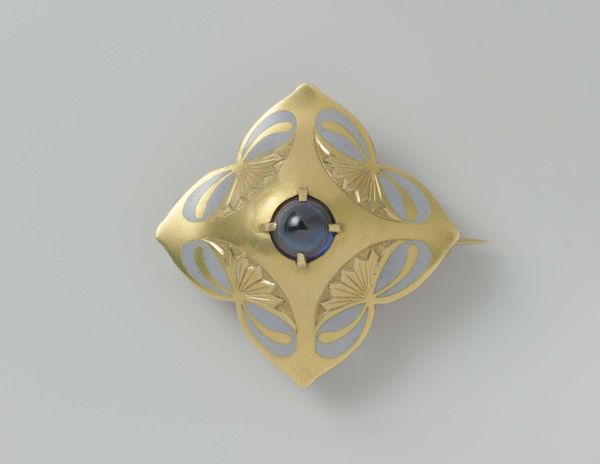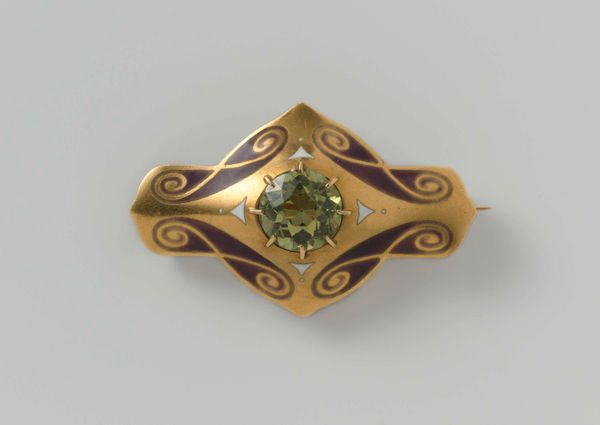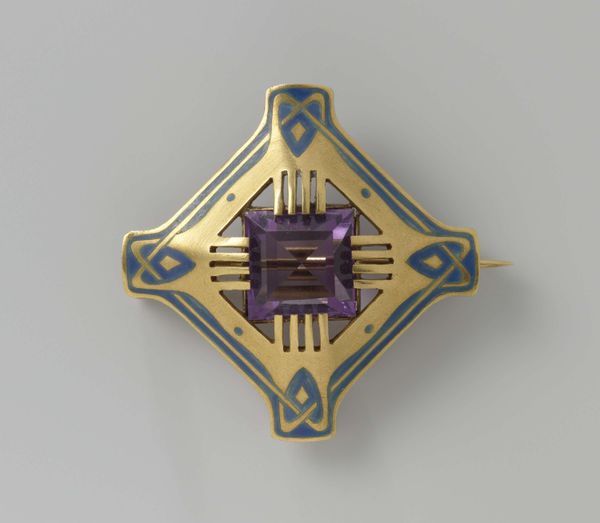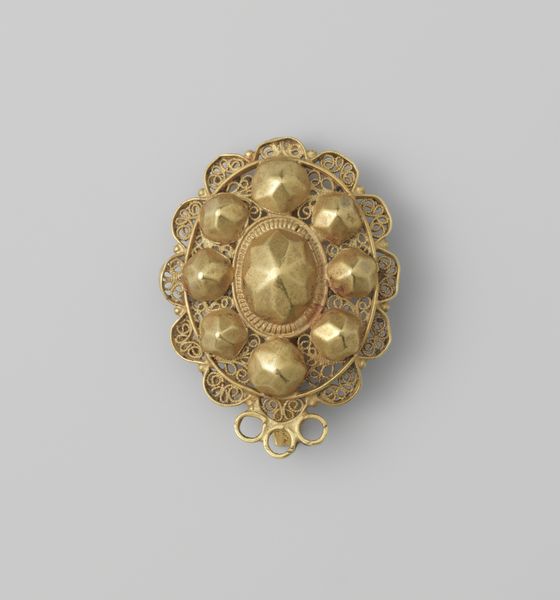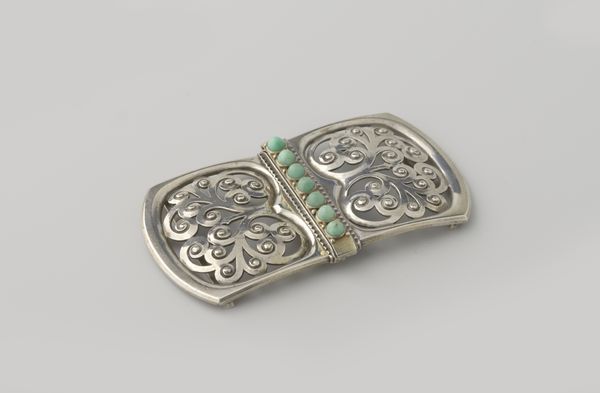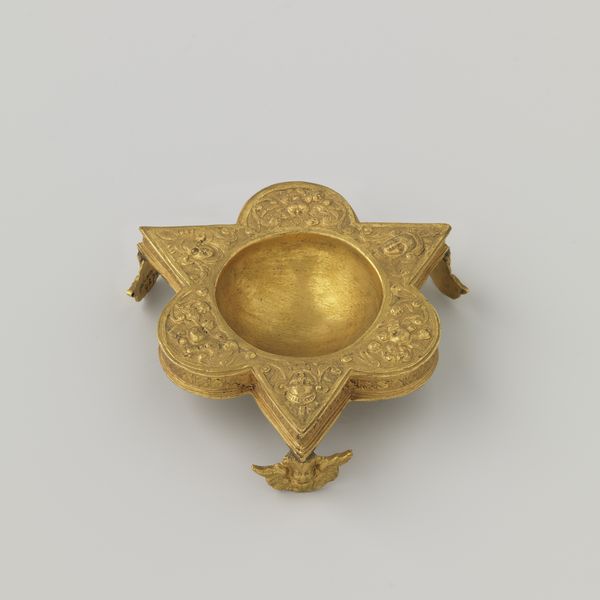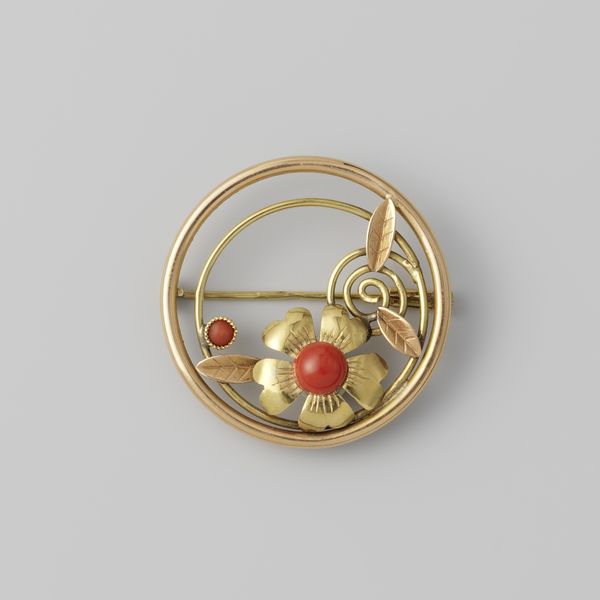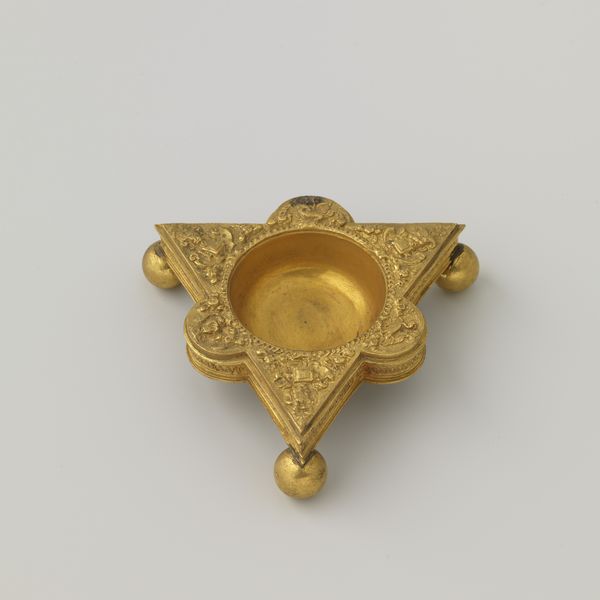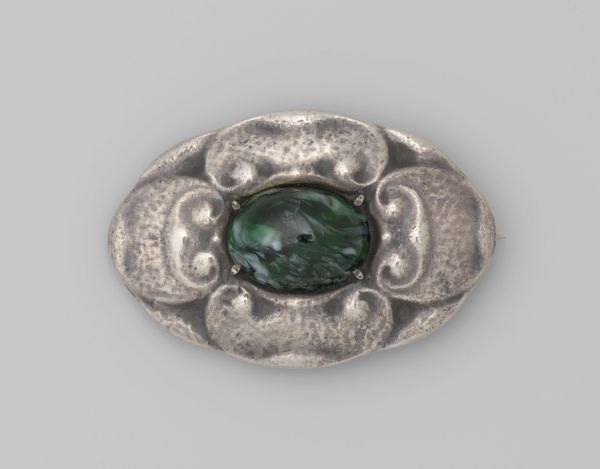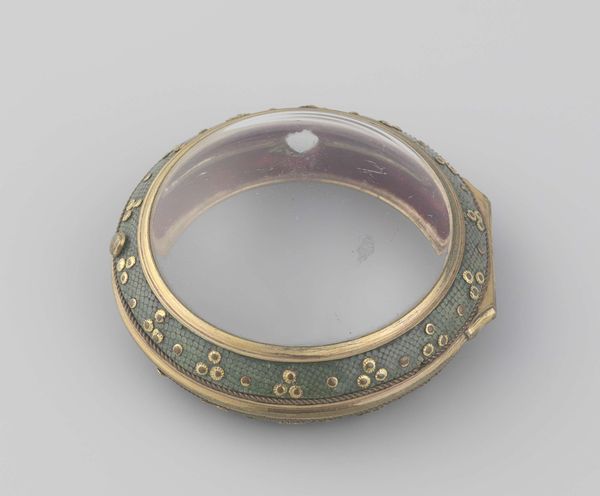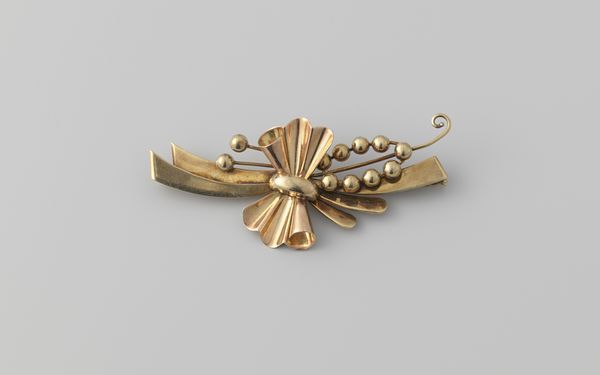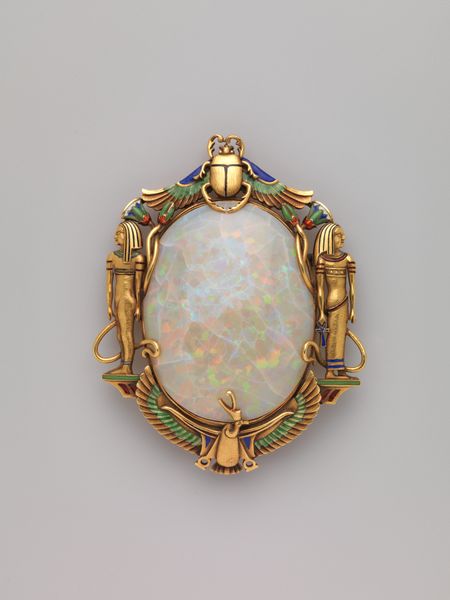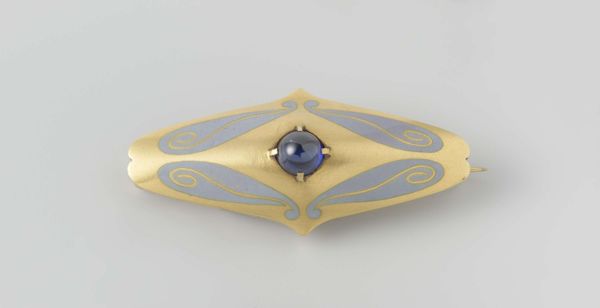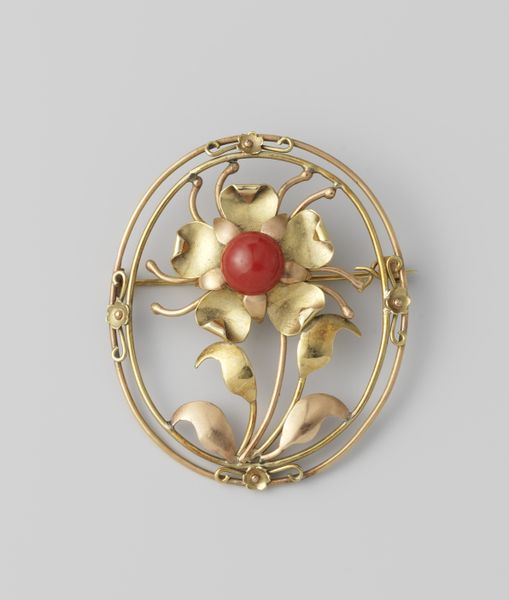
#
clear graphic shape
#
3d sculpting
#
circular oval feature
#
wedding photograph
#
3d printed part
#
jewelry design
#
virtual 3d design
#
round design
#
3d shape
#
3d digital graphic
Dimensions: height 3 cm, width 3 cm
Copyright: Rijks Museum: Open Domain
Editor: Here we have Lodewijk Willem van Kooten's "Broche," dating from around 1908 to 1911. I’m immediately drawn to the swirling designs contrasting with the central pale green stone. It feels both ornate and somehow, almost industrial. What strikes you about this piece? Curator: Well, let’s consider the materials. We see gold, certainly, perhaps some enamel for the darker details, and a semi-precious stone, likely turquoise. It invites us to ask questions. Was this crafted individually by hand or was it a prototype for something mass-produced? The question really focuses on the labor and processes of its creation. How does that relate to the perceived value, then and now? Editor: That's a great point about value. Does the artistry outweigh the cost of the raw materials in a piece like this? Curator: Exactly! Where do we, or would the intended wearer, place the value? Is it on the material itself, the perceived inherent value of gold and gems? Or on the labor of the artisan, shaping these materials into a form intended to adorn? It speaks to the cultural obsession with both status and the human touch, even as industry sought to replace that touch. How might the broche itself function within systems of economic exchange? Perhaps given as a gift within certain networks, indicating one's class and economic status. Editor: It's fascinating to think of it as both an aesthetic object and a little artifact of social and economic exchange. I’ll definitely look at jewelry differently from now on. Curator: Precisely. It forces us to acknowledge art as an element deeply intertwined with the wider societal currents. Seeing those production practices offers a totally unique insight.
Comments
No comments
Be the first to comment and join the conversation on the ultimate creative platform.
